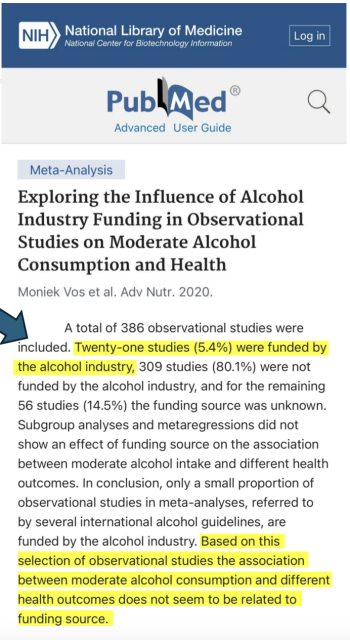Why it’s time to start defending wine
With anti-alcohol rhetoric on the rise, it’s time for the drinks trade to start defending wine’s role in society, stresses physician and vintner, Dr Laura Catena.

Such a view comes from an increasingly-frustrated Catena, who cites a series of recent articles in the mainstream media that are uncritically promoting the idea that consuming alcohol in any quantity is a danger to health.
Adding to her irritation is the fact that, having drawn the media’s attention to credible scientific studies showing that drinking moderate amounts of wine may offer certain health benefits, she has had no response from papers such as The Times, The Guardian and The Wall Street Journal, which she feels have been disseminating “misinformation”.
Consequently, Catena, who was a practising physician in California for 27 years before heading up her family’s wine business in Argentina, Bodega Catena Zapata, has launched her own website, called In Defence of Wine, featuring her considered letters to various media, along with a presentation on wine and health.
Earlier this year, she spoke to db outlining her thoughts regarding the nature of reporting on alcohol and health, and the need for a balanced perspective on the topic – something she believes is sorely lacking in some media, as well as from the World Health Organisation (who are promoting the view that ‘no level of alcohol consumption is safe for our health’).
“I don’t know what their motivations are – I can only speculate – but what I’m seeing in the press, such as The Guardian, are stories that in my opinion feature misinformation, while attacking serious, credible research,” she told db.
Continuing she said, “The lifestyle press is only publishing anti-alcohol articles and it’s not citing the most reputable journals.”
As for the World Health Organisation, she accuses it of failing to acknowledge the credible science showing certain positive effects from moderate drinking for over 40s – in other words, the message of ‘no safe level’ regarding alcohol consumption is not true.
Such an approach risks “confusing the public” fears Catena, who adds, “we were saying that moderate drinking could potentially have some benefits and some harms, but now we are saying there are no benefits.”
“This is why I’m publishing all my letters to editors on ‘In defence of wine’,” she said, referring to the site she has launched to host her work on the topic of alcohol and health.
“It is really in response to the fact that it seems newspapers only want to hear one point of view,” she says.
During our discussion, one issue that Catena wants to tackle is the topic of bias, which has been in the media in the US regarding a review of the health effects of alcohol by the National Academies.
Two of the scientists on that study were said to have ties with the alcohol industry – they had reportedly received funding from the sector – as was exposed in a New York Times article. As a result of one of them taking a stipend for travel many years ago, they have been removed from the ‘expert committee’ by the National Academies due to ‘conflicts of interest’.
While Catena acknowledges the possibility of such bias, she says that there are “two kinds of bias, and one of them is financial, but the other is ideological.”
In the case of a special subcommittee ICCPUD (Interagency Coordinating Committee on the Prevention of Underage Drinking) engaged to advise on the topic of alcohol for the American Dietary Guidelines, there is now an ideological bias according to Catena: “They are either members of anti-alcohol groups or anti-alcohol in their focus, and there is no cardiologist,” she records, with the latter issue of particular importance because a wealth of scientific studies points to the reduced risk of cardiovascular disease from moderate drinking.
As she asks, “How can you form an opinion about moderate drinking without a cardiovascular specialist?”
In any case, she believes that receiving money from the drinks trade is necessary for helping people find out more about alcohol and health.
“5% of research is funded by the alcohol industry and it has been found that there is no bias* – and I think the alcohol industry should fund research, like pharmaceutical companies [fund clinical research],” she says, before stating, “Alcohol is the most widely consumed drug in the world – we need the answers.”
While Catena’s campaign and website is called ‘in defence of wine’, she tells me that really she is “in defence of science”, stating that there may be thousands of studies, but “hundreds that are good”, and which clearly show that “the main potential benefit from moderate drinking is cardiovascular”.
Such studies also show “some small cancer risks – and they are really small – from moderate drinking”, she continues.
By way of example she says, “If my risk of developing breast cancer is 10%, then it would be 11% [as a moderate drinker] – but they don’t tell you that; and they don’t tell you that there are risk mitigators too – such as eating vegetables.”
Associated with drinking are “seven different cancers” according to Catena, which “are mostly only an issue if you drink in excess”, but for “moderate drinkers” there is a marginally-raised risk of developing cancers of the breast, as well as the oral cavity – “with smoking and drinking together being very bad”.
Partner Content
Perhaps surprisingly, moderate drinking “does not put you at higher risk of liver cancer, because wine is broken down in to acetaldehyde – which is toxic, but in small amounts the liver clears this very fast – so there is no toxic effect.”
Meanwhile “there is a physiological reason why alcohol is good for cardiovascular health – it is clot buster, like taking aspirin, so wine in moderation is a preventative measure.
“Then there’s the effect on diabetes: if you drink a little wine with meals then your blood sugars don’t go up as much, and there are lots of studies to show that,” she says, explaining the reason why there is a lower risk of developing type 2 diabetes if you are a moderate wine drinker.
And she adds that moderate wine drinkers tend to have higher HDL – which is high-density lipoprotein cholesterol, also known as ‘good’ cholesterol, because it helps clear ‘bad’ [low-density lipoprotein] cholesterol from your body.
As for criticisms of studies that show some benefits from moderate drinking, such as the idea that they include “ex-drinkers”, dubbed “sick quitters”, Catena stresses that these quibbles are no longer valid, with only “never-drinkers” included in the past two-decades of research regarding alcohol and harm – “and we still find the effect”, she says, referring to the positive impact on cardiovascular health for moderate drinkers versus abstainers.
Acknowledging that “this is super complex stuff”, she points out that The Lancet’s 2022 publication of findings from the Global Burden of Diseases Study (2020) clearly states that for people over 40, “consuming small amounts of alcohol can provide some health benefits, such as reducing the risk of cardiovascular disease, stroke, and diabetes.”
She says, “It is a respected UK journal, and for anyone to go against that, then you need real science.”
Furthermore, while it is clear from such studies that excess drinking is associated with a number of harms, “in a democratic society it is up to people to decide [how much they consume].”
She adds, “It would be like not letting people drive a car because they might go fast and get into an accident; people need to decide if it’s an acceptable risk – driving allows them to go on vacation, or go to work.”
Catena is also appalled by the drawing of similarities between alcohol and smoking. “It is shocking to find comparisons with cigarettes, which have no benefits at any level… you cannot compare wine to cigarettes, which are much more addictive, very hard to moderate, and there’s no study to show that cigarettes are good.”
One development that Catena does mention as a cause for concern is the rise in obesity due to less-active lifestyles.
“We are looking at a new kind of person that is much more sedentary,” she says, noting that inactivity and drinking is not a healthy combination.
“It’s possible as a society we need to support those who need to moderate their drinking or be sober, but the way to do that is not to be anti-science,” she states.
In conclusion, Catena says, “Do we have the gold-standard study? No, but that doesn’t mean that we can ignore all these observational studies.”
“And to say that drinking is bad or there is no safe level is not backed by the broad scientific work out there.”
Indeed, for Catena, “Drinking in moderation makes you feel good – so I’m saying it is health neutral and pleasure positive – which is very different from saying there is no safe level.”
Finally, Catena expresses her consternation regarding the inability some organisations and certain media to present a balanced view on the topic of wine and health.
“I’m very surprised that we are at this moment in history, I never predicted it – never – that in democratic societies we should be following this way of thinking,” she said, referring to the promotion of wine as a dangerous substance without considering the proven health benefits too.
It’s for this reason that’s she campaigning to promote wine’s positive role in society based on credible scientific research.
Let’s hope that those considering the topic take note from this doctor-turned-winemaker who was an emergency physician for 27 years.
* ‘Many studies showing cardiovascular benefits from alcohol were funded by alcohol industry’ – writes WHO, in ‘Reporting about alcohol: a guide for journalists’ (April 2023). However, Catena points out that the article cited by WHO shows 5.4% industry funding out of 386 observational studies and no apparent bias in the findings (see below).

Related news
Wine and beer sales to improve New York lake health
CEEV and Spirits Europe file formal complaint over Irish wine label health warnings
Drink 'thousands of different wine grape varieties' to boost your health, expert says




